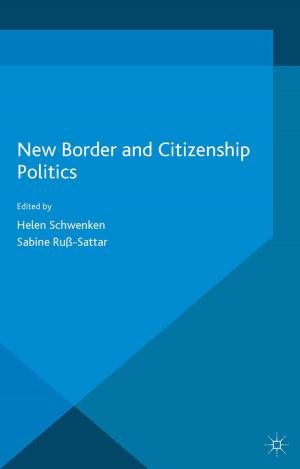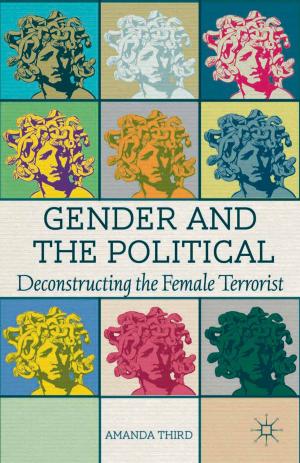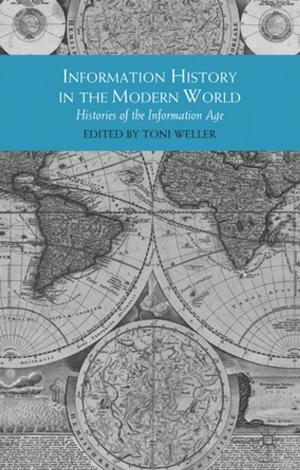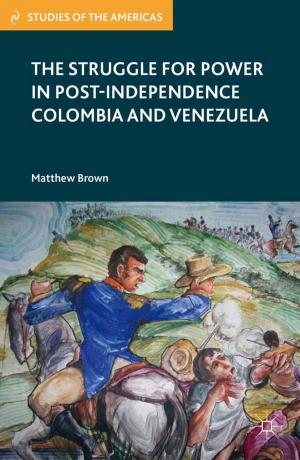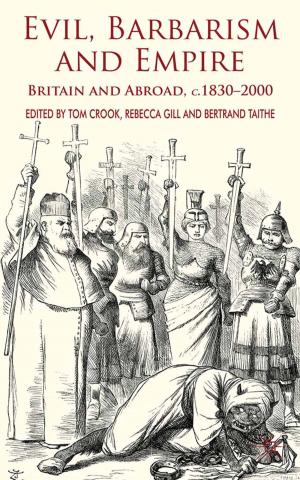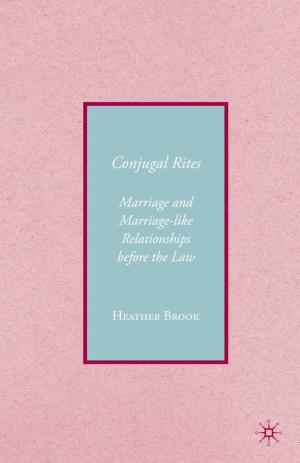Witchcraft in Europe
Nonfiction, Religion & Spirituality, Christianity, Church, Church History, Social & Cultural Studies, Social Science, Gender Studies, History| Author: | P.G. Maxwell-Stuart | ISBN: | 9781137125057 |
| Publisher: | Palgrave Macmillan | Publication: | April 23, 2001 |
| Imprint: | Palgrave Macmillan | Language: | English |
| Author: | P.G. Maxwell-Stuart |
| ISBN: | 9781137125057 |
| Publisher: | Palgrave Macmillan |
| Publication: | April 23, 2001 |
| Imprint: | Palgrave Macmillan |
| Language: | English |
Magic and witchcraft have been believed in, and practised, from ancient times through to the present day, frequently as an expected companion to the official religion. It is, however, important not to fall into the trap of thinking of these beliefs as being a monolithic set of tenets and practises.
The aim of this book is to provide students with insight into the way in which people in the early modern period framed their ideas abouth the 'Creator' and the created universe in terms of magic. This mental framework informed and moulded theology, philosophy, the law, medicine, and the sciences, as well as offering everyone practical help to cope with and find solutions to the multifarious problems of their everyday lives. A study of witchcraft, (which was simply a particular manifestation of this mental world) therefore helps to illustrate many of the key concepts which governed both defenders and, later, opponents of the magical Zeitgeist.
Maxwell-Stuart creates a lively overview of the subject from medieval attitudes to witches, through the details of two influential treatises, to the effect of the Reformation on attitudes to witchcraft, and the influence of Calvin, Luther and James VI of Scotland. Recent scholarship on witchcraft in Scandinavia, Iceland, Russia, Hungary, Poland and the New World enriches the text.
The aim of this book is to provide students with insight into the way in which people in the early modern period framed their ideas abouth the 'Creator' and the created universe in terms of magic. This mental framework informed and moulded theology, philosophy, the law, medicine, and the sciences, as well as offering everyone practical help to cope with and find solutions to the multifarious problems of their everyday lives. A study of witchcraft, (which was simply a particular manifestation of this mental world) therefore helps to illustrate many of the key concepts which governed both defenders and, later, opponents of the magical Zeitgeist.
Maxwell-Stuart creates a lively overview of the subject from medieval attitudes to witches, through the details of two influential treatises, to the effect of the Reformation on attitudes to witchcraft, and the influence of Calvin, Luther and James VI of Scotland. Recent scholarship on witchcraft in Scandinavia, Iceland, Russia, Hungary, Poland and the New World enriches the text.
Magic and witchcraft have been believed in, and practised, from ancient times through to the present day, frequently as an expected companion to the official religion. It is, however, important not to fall into the trap of thinking of these beliefs as being a monolithic set of tenets and practises.
The aim of this book is to provide students with insight into the way in which people in the early modern period framed their ideas abouth the 'Creator' and the created universe in terms of magic. This mental framework informed and moulded theology, philosophy, the law, medicine, and the sciences, as well as offering everyone practical help to cope with and find solutions to the multifarious problems of their everyday lives. A study of witchcraft, (which was simply a particular manifestation of this mental world) therefore helps to illustrate many of the key concepts which governed both defenders and, later, opponents of the magical Zeitgeist.
Maxwell-Stuart creates a lively overview of the subject from medieval attitudes to witches, through the details of two influential treatises, to the effect of the Reformation on attitudes to witchcraft, and the influence of Calvin, Luther and James VI of Scotland. Recent scholarship on witchcraft in Scandinavia, Iceland, Russia, Hungary, Poland and the New World enriches the text.
The aim of this book is to provide students with insight into the way in which people in the early modern period framed their ideas abouth the 'Creator' and the created universe in terms of magic. This mental framework informed and moulded theology, philosophy, the law, medicine, and the sciences, as well as offering everyone practical help to cope with and find solutions to the multifarious problems of their everyday lives. A study of witchcraft, (which was simply a particular manifestation of this mental world) therefore helps to illustrate many of the key concepts which governed both defenders and, later, opponents of the magical Zeitgeist.
Maxwell-Stuart creates a lively overview of the subject from medieval attitudes to witches, through the details of two influential treatises, to the effect of the Reformation on attitudes to witchcraft, and the influence of Calvin, Luther and James VI of Scotland. Recent scholarship on witchcraft in Scandinavia, Iceland, Russia, Hungary, Poland and the New World enriches the text.

